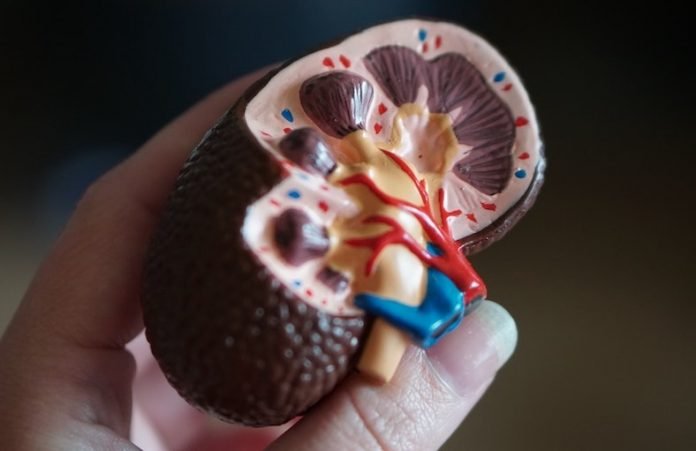
In a study from the University of Washington, scientists found removing small “silent” stones before they cause trouble is very important for kidney health.
Kidney stones are common, affecting about 10% of people at some point, according to the National Kidney Foundation.
Often, a stone can be passed in the urine without too much agony. But when a larger stone is causing a urine blockage or unbearable pain, treatment is necessary.
When people develop a kidney stone that is painful enough to require removal, imaging tests often reveal that they harbor smaller, asymptomatic stones, too.
And doctors know there is a high likelihood that those stones could cause symptoms later on.
In the study, researchers recruited 73 patients who were having painful kidney stones removed and randomly assigned them to one of two groups.
In one, urologists removed any small, symptom-free stones from the kidneys; in the other group, those stones were left in place.
The team found the difference was clear: Patients who had preemptive stone removal were 82% less likely to have a relapse over the next four years.
Over the next four years, 16% of patients in the preemptive group had a relapse—versus 63% of patients in the comparison group.
Relapse meant either another painful stone episode or the stones left behind had grown.
The researchers of the study are expert endo-urologists—urologists who specialize in the minimally invasive techniques used to retrieve kidney stones.
It’s not clear whether patients could expect the same results regardless of who performs the stone removal.
There are cases where kidney stones are treated noninvasively, with a procedure called shock wave lithotripsy. It delivers high-energy sound waves through the skin to break the stone into tiny fragments that can be passed.
But that approach has been falling out of favor—in part because it leaves small stones and stone fragments behind.
Even when secondary stones are removed, it is possible for new stones to form.
It’s important for people who’ve had stones to talk with their doctor about ways to help prevent new ones, including diet and lifestyle changes.
If you care about kidney health, please read studies about common sleep pills that may protect against kidney damage, and the Keto diet may help reverse common kidney diseases.
For more information about kidney health, please see recent studies about how to protect your kidneys from diabetes, and results showing drinking coffee may affect your kidney health.
The study was conducted by Dr. Mathew Sorenson et al and published in the New England Journal of Medicine.
Copyright © 2022 Knowridge Science Report. All rights reserved.



